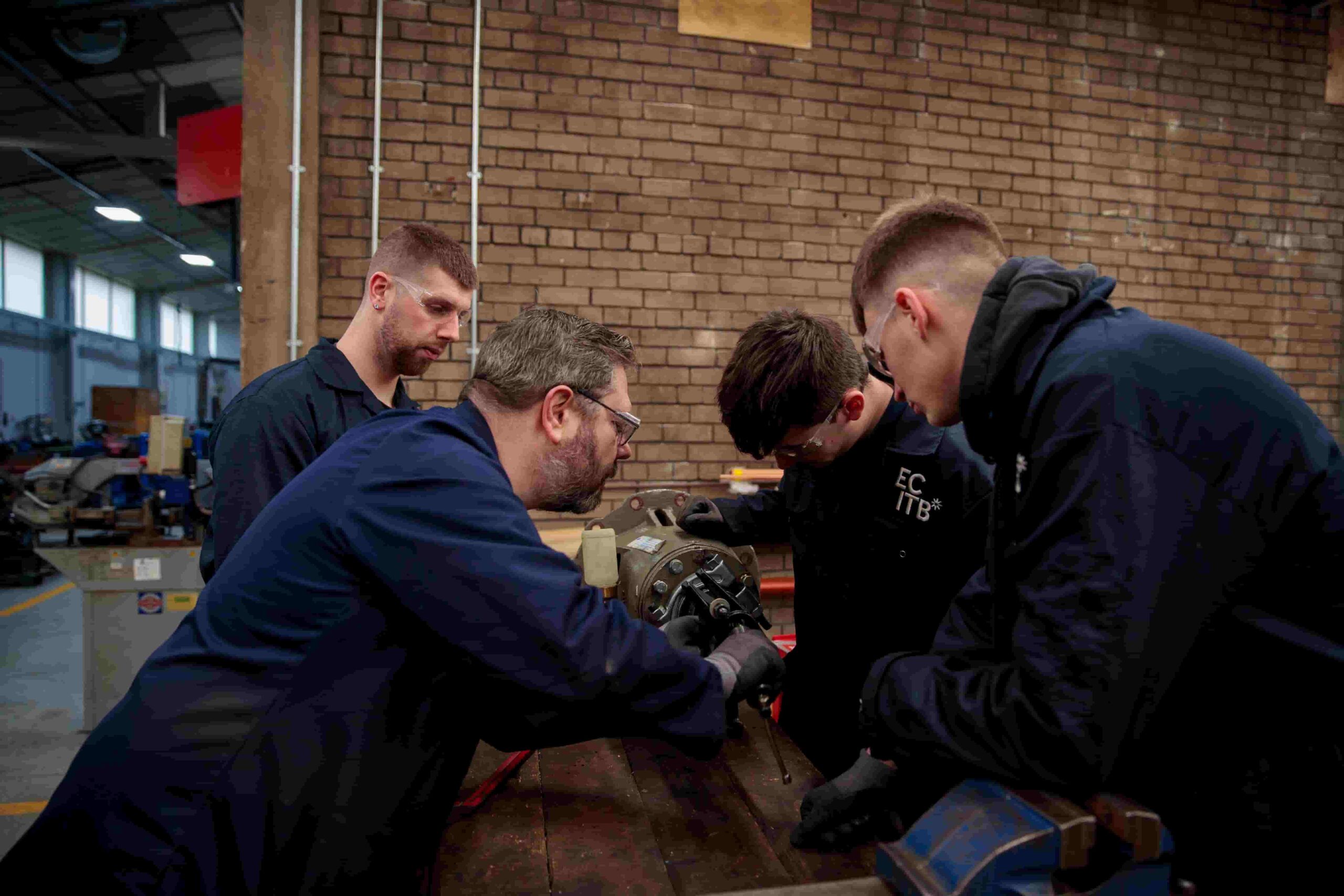
ECITB announces £1M investment in Regional Skills Hubs – including in North East

The Engineering Construction Industry Training Board (ECITB) has announced it will invest one million pounds for Regional Skills Hubs over the next two years to boost training provider capacity and grow new entrant numbers in the ‘Industrial Cluster’ hot spots that are at the heart of the UK’s decarbonisation agenda.
Andrew Hockey, ECITB Chief Executive, said: “We know that over the next few years, the UK will need in excess of 25,000 extra workers for major engineering construction projects, including those that contribute to the country’s net zero goals.
“In addition to building new renewable and nuclear energy capacity, we must also ensure that our existing industries undergo substantive decarbonisation. This will need many more skilled workers.
“This investment will address the skills shortages by supporting training and assessment capacity-building projects in the UK’s industrial heartlands that will directly increase the flow of workers into the industry.
“We are looking to support projects focused on enhancing training and skills provision in the six major industrial cluster regions, as well as other major ECI projects within a defined geographical footprint.”
The six industrial clusters are the Black Country, East Coast (comprising Teesside and Humber), Northwest England, Scotland, South Wales and the Solent.
Major projects are underway that will deploy a combination of energy efficiency measures, hydrogen production, carbon capture, use and storage technologies, and fuel switching including electrification to decarbonise industrial assets in these regions.
Andrew explained: “The twin goals of energy security and net zero are mission-critical so we’re keen to work with clients, contractors and training providers in the industrial cluster regions to invest in growing the number of skilled engineers and craftspersons we need now and in the future.
“Without a pipeline of trained, skilled people, all this risks not being achieved.”
Grants of between £50,000 and £500,000K will be awarded to eligible projects that meet set criteria. This includes:
• Forecast capacity building should be at least 25% increase against current output.
• Projects will need to match ECITB grant funding from industry partners.
• Training and assessment activity must be delivered against recognised industry standards.
• Projects must feature a lead role for at least one ECITB-approved training provider.
The grants can be used to support either capital or operational expenditure. Capital expenditure may include upgrading training equipment or facilities. Operational expenditure may include curriculum development, training for staff, industry secondments and engagement of SMEs to support training development.
The industry-led training and skills body now wants to talk directly to providers and their industry partners to discuss potential projects.
To find out more initial contact should be made to Andy Brown, Chief Operating Officer: andy.brown@ecitb.org.uk or David Nash, Director of Strategy and Policy: david.nash@ecitb.org.uk
Funded by a levy on engineering and construction industry employers, ECITB invests around £28 million annually back into skills and competence training.
The ECITB’s Leading Industry Learning Strategy 2023-25 was developed in partnership with industry, training providers and UK, Scottish and Welsh governments and focuses on supporting growth by helping to address industry recruitment and retention challenges, as employers look to expand the workforce to deliver a growing number of projects earmarked for execution on the horizon.
The ECITB forecasts 25,000 additional workers are needed for major projects, including those related to net zero, by 2026, placing employers in direct competition for labour from £650bn of infrastructure projects in the wider UK economy. The UK Government’s Energy Security Strategy has upped the stakes further, placing greater pressure on industry and the engineering construction supply chain to expand to meet new energy-generating capacity targets.
The strategy aims to help industry meet the workforce volume challenge and prepare for a boom in project activity for engineering construction employers. These projects span a range of sectors including nuclear new build and decommissioning, renewables, oil and gas, water treatment and food and drink. They also include hydrogen and carbon capture projects linked to the decarbonisation of the industrial clusters, which are at the heart of the country’s net zero plans.
External URL: https://www.ecitb.org.uk/blog/2023/11/23/ecitb-announces-1m-investment-in-regional-skills-hubs/
By ECITB
448 Views
Recent Posts
- Explore the Impact of Verifying Carbon Capture Technologies
- ITS wins Supplier of the Year at the ISPE UK Affiliate Annual Awards
- Cembre MG4 | The Newest Thermal Printer for Identification & Labelling | Available From Thorne & Derrick
- Share your expertise at ICPVT15: International Conference on Pressure Vessel Technology
- Minimising GWR Probe Build Up with the Magnetrol Eclipse 706
Back to News >



